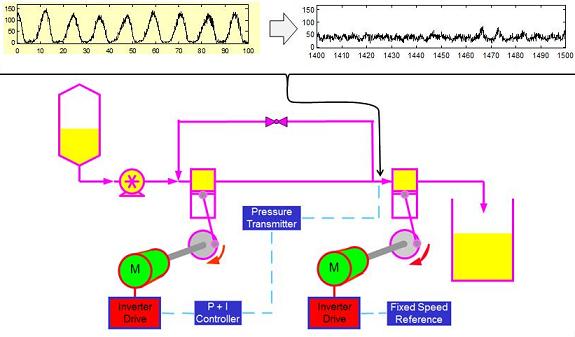Control Improvement
WHAT WE DO EXAMPLES OF OUR WORK CUSTOMER FEEDBACK
WHAT WE DO
"Approaching a problem with an open mind is an important aspect of ISC philosophy, as is using the simplest, most cost effective solution."
Every plant has control issues, most of which do not appreciably impact on profitability or safety. However, there will be some that, if corrected, could significantly benefit the plant's operation through lower variability, increased throughput, reduced energy usage or reduced manual intervention. Unfortunately such problems often become accepted as the norm with the perception that a solution would be too difficult or too costly. Yet most problems can be simple and cost effective to fix - providing the problem source is known.
ISC is routinely engaged to look at process control problems that suppliers have looked at but failed to solve. We have an excellent track record in finding the real cause of problems through our special combination of theoretical understanding, extensive practical experience and engagement with all functions in a client company. Myths often abound regarding causes of such problems. Approaching a problem with an open mind is an important aspect of ISC philosophy, as is using the simplest, most cost effective solution.
System performance problems are not always due to the controller, though often they are labeled as such. ISC's approach to troubleshooting is that all aspects of the system are to be scrutinised before reaching a conclusion. Sensor, actuator, system design and operational aspects are all considered.
Our control improvement service includes:
- Process Behaviour Analysis - The term "data rich, information poor" is very appropriate in many of today's industrial systems. ISC has been involved with various process analysis projects, where the aim is to translate the vast amount of data captured by control systems into meaningful information. This can be used for control loop performance monitoring or fault detection.
- Control Performance Assessment - Changes in product and raw materials as well as wear and tear
of actuators (valves, drives, etc), measurement sensors and other equipment often degrade control and plant financial performance.
If the root cause is not clearly established, control re-tuning activity can make matters worse. It is therefore
important to identify the root cause of any problems using experienced control personnel and process diagnostic tools,
and, where needed, perform control benchmarking to compare actual loop tuning against the optimum possible.
We have been active in control performance assessment for many years and you can find more details here. - Optimisation - Where a model of a system is available (if not, we can help you develop one), formal optimisation methods can be used to find the best solution to a problem. This can range from finding the best tuning parameters for a difficult control problem, or determining the most profitable / best way of operating a plant or system. Optimisation can be applied to static and dynamic problems, including both hard and soft constraints and conditional logic. Methods used include Quadratic Programming, Gradient Searches, Genetic Algorithms.
INDUSTRIES WE SERVE
Our control improvement services are available to a range of industries:
Troubleshooting and Removing Oscillations from Control Loop
